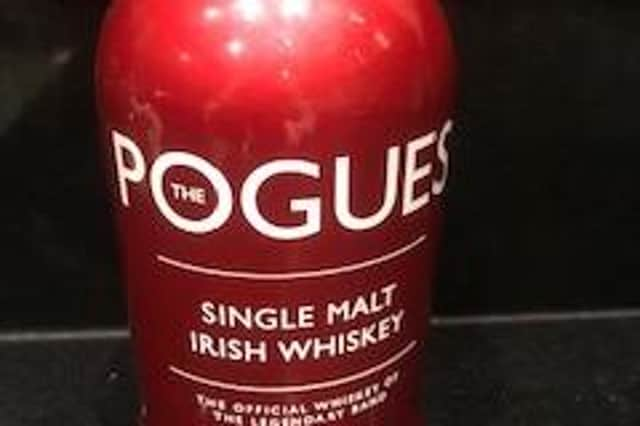Raising a glass to Shane MacGowan


Offering little more than the band name, The Pogues, the title of the debut single, Dark Streets of London, and a picture of the seven or eight members, it still managed to tell me everything I needed to know.
They didn’t look like the shiny pop stars of the time and they certainly weren’t singing about the same cheesy subject matters.
Advertisement
Hide AdAdvertisement
Hide AdIt tuned out, as I discovered on hearing said song on John Peel’s Late Night Radio One show, that they didn’t sound like them either.
At the time, I guess, I was attracted only by the riotous mix of punk and Irish folk, and the fact the frontman looked like he had done 14 rounds (of drinks, not boxing) with the heavyweight champion of the world.
It turned out, of course, to be much more than that.
I saved up and bought their fantastic debut album, Red Roses For Me, from Jumbo Records in Leeds, and the songs, it felt at a young and impressionable age, spoke to me.
They were about prisoners, Irish navvies, murder, down and outs, the underworld, the darkness and far flung lands.
Advertisement
Hide AdAdvertisement
Hide AdThe lyrics were, in turn, deep and considered, yet disrespectful of those that deserved to be disrespected. They were poetic yet contained enough swearing to threaten supply in a factory producing those parental advisory lyrics they used to (still do?) stick on LPs that contained profanity.
Most of all, the songs about humanity. They also taught me about history and told the stories of the lives of those whose existences may otherwise have gone unrecorded. They were written with empathy and feeling, and I don’t think you can ask for much more than that.
By the second record, Rum Sodomy & The Lash, vocalist Shane MacGowan was writing the poetry of the dispossessed. Not just those sleeping on the city’s streets, but those robbed and pillaged through history.
He managed this for one more album, maybe two, before the booze and the drugs took over completely, and the mythical tales contained in the drinking songs became reality.
Advertisement
Hide AdAdvertisement
Hide AdHe was always honest about that side of things, as he seemed to be about most things.
That’s the rub, you see. There’s plenty say it and sing it, but they don’t mean it (that’s not to say that if you sing about homelessness and drinking, you have to be a 1970s-style Thunderbird/meths-drinker with a huge beard).
You could see it in his eyes. He wasn’t from that background, but he knew. He connected. He connected with most people in one way or another. Eventually he connected with almost everyone through the Christmas hit Fairytale of New York.
Suddenly, all those who had The Pogues down as nothing more than an update of an old-style Irish country showband or a Dubliners for a new generation knew there was more to them. The Dubliners themselves said so.
Advertisement
Hide AdAdvertisement
Hide AdThe first time I went to see Shane, in London, he was 30 minutes late for the gig, stared out at the audience with a look of surprise on his battered face, gave an almost toothless grin and cracked straight on with a lyrically faultless Boys From The County Hell.
He lived for the moment, you see. The moment’s gone now though. Gone before Fairytale of New York made Christmas number one and before his December 25 birthday. As the song goes, he won’t see another one. RIP Shane.